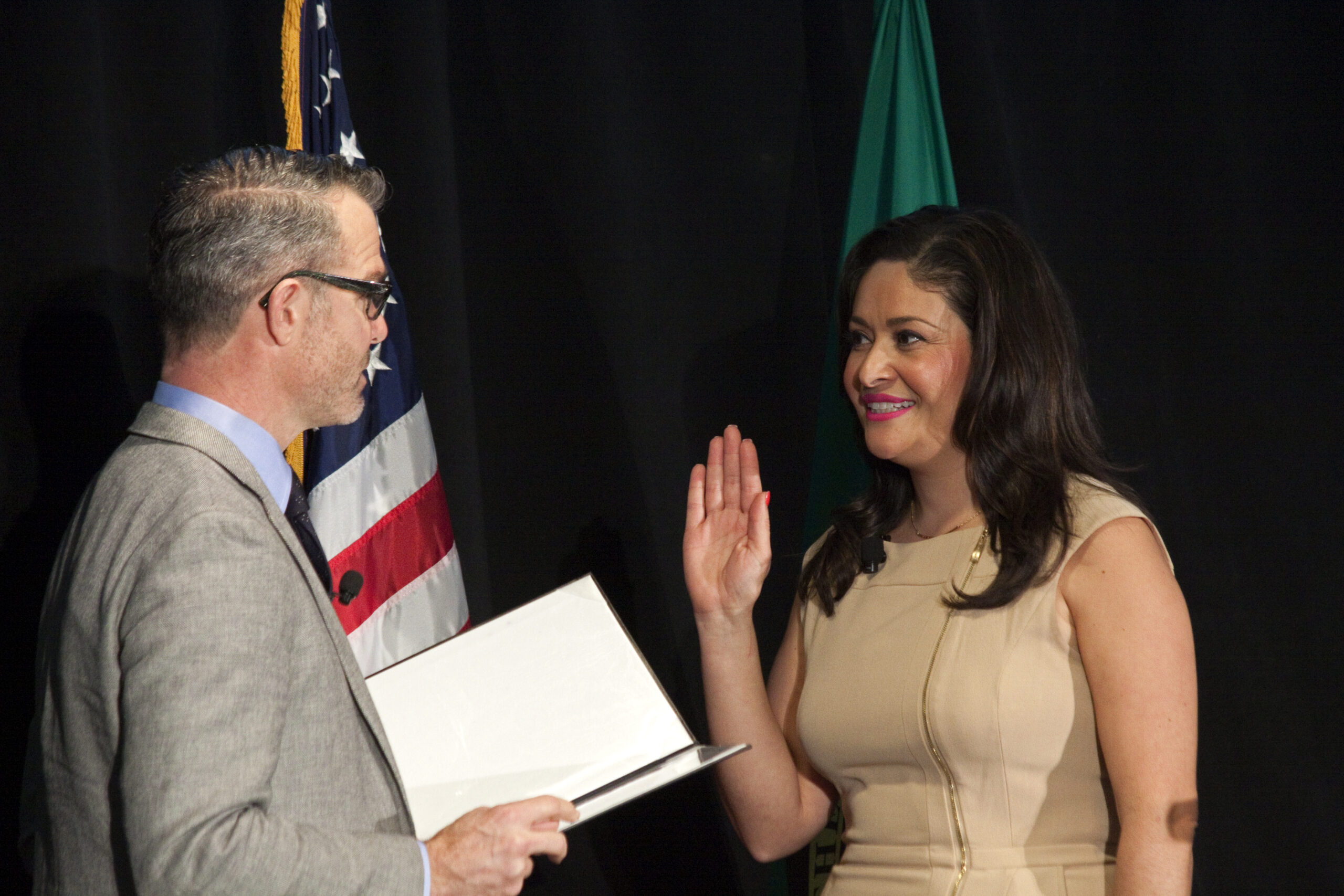In December 2020, Seattle Mayor Jenny Durkan announced that she would not be seeking a second term, upending expectations for the 2021 mayoral election. Durkan’s decision came after a year in which Seattle was an early epicenter of the coronavirus pandemic, and racial justice protests rocked the city for months.
Both of these factors strained the Mayor’s relationships with her constituents and other elected city leaders to a breaking point.
Durkan (a former nonprofit leader and U.S. Attorney) has politics in her blood: her father was a state lawmaker, two-time candidate for governor, and one of the state’s most influential lobbyists. By contrast, one of the leading candidates to replace her grew up in one of the state’s most marginalized communities.
Councilmember Lorena Gonzalez grew up in a family of undocumented Mexican migrant laborers, migrating from farm to farm in the Yakima Valley.
As early as the age of eight, González was working alongside her parents and siblings in fields and orchards. She was determined to escape her family’s precarity, though, and worked her way up through community college and law school, earning a Juris Doctor degree in 2005.
For the next decade, González made her name as a civil rights attorney, garnering particular attention for her willingness to take on abuses by police officers.
In 2014, her legal reputation earned her a spot as a legal advisor for then-Mayor Ed Murray. From her position at the heart of city politics, González mounted a successful run for the city council in 2015, becoming the body’s first Latina member. She was re-elected in 2017, and became City Council President in early 2020.

As a child, González translated for her parents as they negotiated better wages with farm-owners. As an adult, she hasn’t had a problem standing up to powerful figures. In 2017, she became the first member of the Council to call for the resignation of Mayor Ed Murray (her old boss) over child abuse allegations, sticking to her guns even though it took months for the rest of the Council to join her. The following year, she was on the front lines of a protracted battle over a corporate “head tax” that ultimately ended up being repealed.
During the yearlong crisis that was 2020, Councilmember González had ample opportunity to shine. As Council President, with a decade of civil rights litigation under her belt, she was perfectly positioned to lead the Council’s response to protests sparked by the murder of George Floyd, and the subsequent violence meted out on protesters by Seattle PD.
As Mayor Durkan’s administration dithered, González and her allies on the Council implemented sweeping reforms to the police force, including a 20% budget cut.
On the other big issues facing Seattle, González is staunchly progressive.
Ending homelessness is, not surprisingly, one of her biggest priorities.
As a Councilmember, González promoted affordable housing investment and partnerships with neighborhood businesses to help tackle the problem.
She has criticized the current mayoral administration’s slowness to use Council-allocated resources to help homeless people, and promises to quickly use available resources, following a housing-first strategy.
One of the next mayor’s first jobs will be to pick a new police chief for the Seattle Police Department. González has promised to pick a candidate who is committed “at their core” to reforming the culture of the department.
González is likely to go further than reform – she is one of the city’s biggest proponents for a total overhaul of the public safety system, moving money out of police budgets and towards preventative and care-focused programs.
González also has a strong record as a workers’ advocate (going back to her childhood with migrant workers) that she would likely bring to the mayor’s office.
In February, the City Council passed a hazard pay ordnance for grocery workers. González staunchly defended the measure against criticism from the Washington Food Industry Association and the Northwest Grocery Association, saying the decision was “not only the right thing to do, but also good for business.”
The city council’s position was buttressed by a U.S. federal judge last week in an important early legal victory for the city over the ordinance’s validity.
Although it is too early in the year for a full picture of the mayoral race to emerge, Lorena González is undoubtedly one of the best-positioned candidates.
As City Council President, she already has a high public profile and (thanks to the Council’s fast reactions to the pandemic and protests against systemic racism) is seen as responsive to Seattleites.
She is the only candidate so far to have already won a city-wide election, winning for her current at-large seat on the City Council by over 70% in 2017.
Her fundraising numbers are also solid.
Although she lags behind homelessness advocate Colleen Echohawk by a little under $7,000. González’s team will soon complete the qualifying process to redeem over 3,000 democracy vouchers that have been gifted to her campaign.
The Top Two election will be held on August 3rd; the top two candidates will proceed to the general election runoff on November 2nd.

